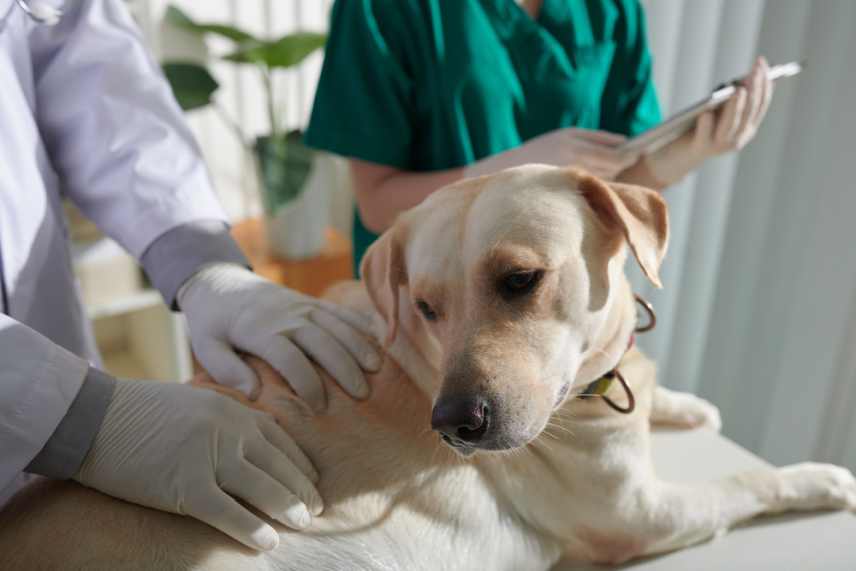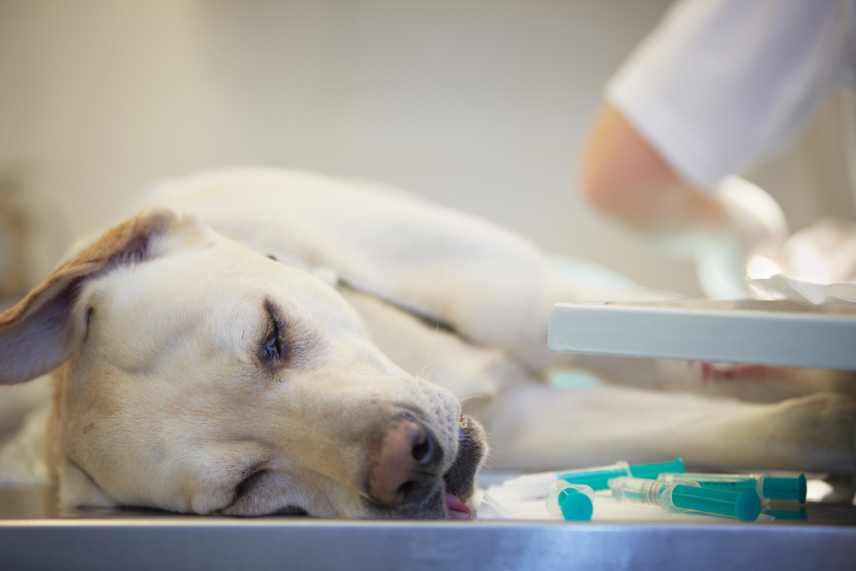Irritable bowel syndrome (IBS) is a condition that affects many dogs, leading to discomfort and distress. Understanding the signs and causes of Irritable bowel syndrome in dogs is crucial for pet owners who want to ensure their furry friends lead happy, healthy lives. Identifying the symptoms early can make a significant difference in the quality of life for affected pets.
Dogs with IBS often display signs such as diarrhea, constipation, or a mix of both. These symptoms may be triggered by dietary changes, stress, or underlying health issues. Pet owners should pay close attention to their dog’s behavior and digestive health to help manage this condition effectively.
Caring for a dog with IBS requires a proactive approach. Proper diagnosis and a tailored treatment plan, which may include dietary adjustments and stress management techniques, are essential for alleviating the symptoms. Knowing what to look for and how to respond empowers pet owners to take action, ensuring their dogs receive the best possible care.

Understanding Irritable Bowel Syndrome in Dogs
Irritable Bowel Syndrome in dogs is a chronic condition that affects the gastrointestinal (GI) tract. It leads to irregular bowel movements and discomfort.
Symptoms of IBS can vary but often include:
- Diarrhea
- Constipation
- Abdominal pain
- Bloating
The exact cause of Irritable Bowel Syndrome in dogs is not well understood. It may result from a combination of factors, including diet, stress, and intestinal microbiome imbalances.
Diagnosis typically involves ruling out other potential issues, such as infections or parasites. A veterinarian may perform tests like fecal examinations or blood tests to assess the condition.
Treatment for IBS usually focuses on dietary management. Switching to a hypoallergenic or easily digestible diet can help. Probiotics may also be recommended to support gut health.
Monitoring stress levels is essential, as anxiety can exacerbate symptoms. Providing a stable environment can aid in managing this condition.
Regular veterinary check-ups are crucial for managing Irritable Bowel Syndrome in dogs. They ensure that any changes in symptoms or overall health are addressed promptly.
Causes and Risk Factors
Irritable bowel syndrome in dogs can arise from various causes and risk factors that may affect gastrointestinal health. Understanding the key contributors is essential for effective management and treatment.
Diet and Food Intolerances
Diet plays a significant role in the development of irritable bowel syndrome in dogs. Certain ingredients may trigger food intolerances, leading to gastrointestinal distress. Common allergens include beef, chicken, dairy, and grains.
Food allergies can provoke inflammation, which compromises digestive function. Affected dogs may exhibit symptoms such as diarrhea, vomiting, and weight loss. Feeding a high-quality, balanced diet tailored to a dog’s specific needs can mitigate these risks.
Owners should consider an elimination diet under veterinary supervision to identify problematic ingredients. Monitoring food intake and changes in symptoms can help determine if diet adjustments are necessary.
Infections and Inflammatory Diseases
Bacterial infections and inflammatory diseases are critical factors in the onset of irritable bowel syndrome. Infections caused by harmful bacteria, such as Clostridium perfringens, can disrupt normal gut flora and lead to severe gastrointestinal issues.
Additionally, conditions like inflammatory bowel disease (IBD) contribute to ongoing inflammation in the gastrointestinal tract. This inflammation results in symptoms such as chronic diarrhea, abdominal pain, and weight loss.
Veterinarians may recommend diagnostic tests to identify underlying infections or diseases that could be exacerbating the symptoms. Addressing these conditions promptly is essential for restoring the dog’s health.
Environmental and Stress-Related Factors
Environmental influences and stress are also significant risk factors for irritable bowel syndrome. Changes in routine, such as moving homes or introducing new pets, can cause anxiety in dogs. Stress-induced reactions often manifest in gastrointestinal symptoms.
Tension in the home environment can lead to behavioral issues that exacerbate digestive problems. Furthermore, exposure to toxins and pollutants can affect gut health.
Creating a stable and calm environment can help minimize stress and its impact on a dog’s digestive system. Providing consistent routines and avoiding sudden changes benefits overall well-being and digestive health.
Signs and Symptoms of IBS in Dogs
Irritable bowel syndrome in dogs can present with a range of signs and symptoms that can affect their overall health and well-being. Recognizing these manifestations is crucial for timely diagnosis and management.
Gastrointestinal Manifestations
Gastrointestinal symptoms are the most prominent indicators of Irritable Bowel Syndrome in dogs. Diarrhea is often chronic and may vary in consistency from loose stools to watery feces. Dogs may also experience vomiting and nausea, which can lead to a decreased appetite.
Bloating and increased gas production are common, causing discomfort. An upset stomach may be evident through unusual behaviors, such as pacing or straining. Weight loss can occur due to malabsorption or food reluctance, while dehydration may happen if diarrhea persists without proper fluid intake.
Behavioral and Secondary Signs
Behavioral changes can accompany gastrointestinal issues. Dogs may become lethargic, indicating discomfort or pain. Increased anxiety can also manifest, leading to changes in behavior or altered interactions with their environment.
Loss of appetite often causes concern, as it can lead to additional weight loss. Owners might notice their pet seeking out cool surfaces or avoiding exertion. Recognizing these behavioral signs aids in identifying IBS and seeking appropriate veterinary care.
Diagnostic Process
Identifying irritable bowel syndrome in dogs involves a structured approach that includes thorough veterinary examinations, various laboratory tests, and differential diagnoses to ensure accurate assessment. Each part of this process is essential to rule out other conditions and arrive at a confident diagnosis.
Veterinary Examination and History
The initial step in diagnosing IBS involves a comprehensive veterinary examination. The veterinarian gathers the dog’s medical history, noting any symptoms such as diarrhea, constipation, and changes in appetite.
A physical examination helps identify any weight loss or dehydration. Observing the dog’s behavior and noting the frequency and consistency of bowel movements is crucial.
The vet may ask about recent dietary changes or potential stressors in the dog’s environment. This detailed history aids in understanding the context of the dog’s symptoms and the likelihood of IBS.
Laboratory Tests and Imaging
Laboratory tests are critical in the diagnostic process for IBS. Common tests include blood work and fecal testing. Blood tests help assess organ function and check for infections or underlying conditions.
Fecal tests can detect parasites or infections that might present similar symptoms. Imaging techniques such as ultrasound and radiographs are also utilized to visualize the gastrointestinal tract and rule out structural abnormalities.
These tests collectively provide vital information that assists in crafting a focused treatment plan, ensuring other potential issues are not overlooked.
Differential Diagnoses
Differential diagnoses play a crucial role in confirming IBS. Since many gastrointestinal disorders share similar symptoms, a diagnosis of exclusion is often necessary.
The veterinarian considers conditions such as inflammatory bowel disease, infections, and food allergies. Each of these can mimic IBS, necessitating thorough investigation.
Using a combination of clinical signs, test results, and response to treatment helps differentiate IBS from these other disorders. Identifying the exact cause of the symptoms enables tailored management strategies, enhancing the dog’s overall health and well-being.
Medical Management
Effective medical management of irritable bowel syndrome in dogs requires a combination of dietary adjustments, pharmacological interventions, and modifications to behavior and environment. Each component plays a crucial role in alleviating symptoms and promoting overall digestive health.
Dietary Adjustments and Nutrition
Dietary changes are critical in managing IBS. Vets often recommend hydrolyzed protein diets, which break down proteins into smaller components, minimizing allergic reactions. These diets are designed to reduce inflammation in the gut.
Novel protein sources such as duck or venison can also be introduced to avoid common allergens. A prescription diet specifically formulated for gastrointestinal issues may provide added benefits, ensuring a balanced intake of nutrients.
Incorporating probiotics can support a healthy gut microbiome, improving digestion and reducing stress-related symptoms. Regular feeding schedules and smaller meal portions may also decrease digestive strain.
Pharmacological Interventions
Pharmacological treatments may complement dietary changes. Antibiotics, like metronidazole, may be prescribed to eliminate bacterial overgrowth in the intestines. This can enhance the gut’s ability to process food.
Anti-diarrhea medications can be used to manage acute symptoms, providing immediate relief. For dogs experiencing stress-related IBS, anti-anxiety medication may be beneficial, addressing the psychological factors contributing to gastrointestinal disturbances.
Owners should consult with their veterinarian to determine the appropriate medications and dosages tailored to their dog’s health status.
Behavioral and Environmental Modification
Behavioral and environmental factors can significantly influence IBS symptoms. Reducing stress in a dog’s environment is key. This might involve creating a calm space free of loud noises and sudden changes.
Ensuring consistent routines in feeding and exercise can also minimize anxiety. Enrichment activities such as puzzle toys or interactive training sessions can help keep the dog engaged and reduce stress levels.
Close observation of the dog’s behavior can assist in identifying triggers for IBS flare-ups, allowing owners to make necessary adjustments to their routines.
Supportive Care and Monitoring
Supportive care and routine monitoring are crucial for managing irritable bowel syndrome (IBS) in dogs. Careful attention to diet and regular veterinary visits can significantly enhance the dog’s quality of life and help manage symptoms effectively.
Home Care Strategies
Providing effective home care involves several strategies aimed at improving the dog’s digestive health.
- Diet Management: A diet low in fat and high in soluble fiber can aid digestion and nutrient absorption. Consider a veterinary-recommended hydrolyzed or novel protein diet for trial periods to identify food sensitivities.
- Fresh Water Supply: Ensuring access to fresh water is vital for preventing dehydration, particularly if the dog experiences chronic diarrhea.
- Monitoring Symptoms: Owners should keep a journal of their dog’s symptoms, including frequency of gastrointestinal disturbances, and any changes in behavior or appetite. This information can be invaluable during veterinary consultations.
- Environmental Factors: Reducing stress in the dog’s environment can help minimize IBS flare-ups. This may include maintaining a consistent routine and providing a calming space for the dog.
Regular Veterinary Follow-Ups
Routine veterinary check-ups play an essential role in the management of IBS.
- Veterinary Visits: Regular appointments allow the veterinarian to monitor the condition, conduct necessary diagnostics, and adjust the treatment plan based on the dog’s response.
- Diagnostic Testing: Periodic testing can help rule out other underlying conditions such as cancer or infections. This ensures that appropriate management strategies are in place.
- Nutritional Assessments: Veterinary evaluations of dietary approaches should take place, focusing on the dog’s ability to digest and absorb nutrients. Adjustments may be made to enhance fiber content or modify food composition.
- Recovery Monitoring: Long-term monitoring is essential for recognizing patterns that may indicate a need for intervention. Identifying triggers and implementing prevention strategies can help manage this chronic condition effectively.
Long-Term Health and Prognosis
Irritable bowel syndrome in dogs can lead to chronic health issues. Chronic inflammation may damage the intestinal lining. This can affect gut health and nutrient absorption.
Life expectancy for dogs with IBS varies. It largely depends on the underlying cause and overall management. With proper care, many dogs maintain a good quality of life.
Stress is a significant factor that can exacerbate IBS symptoms. Managing stress levels through training and a stable environment can help. Regular veterinary check-ups are essential in monitoring health.
In cases where IBS is linked to inflammatory bowel disease (IBD) or infections, treatment may differ. Addressing these specific conditions can improve overall well-being.
The immune system may play a role in gastrointestinal health. A balanced diet supports intestinal muscles and reduces inflammation. This can enhance gut function and contribute to better long-term health.
A tailored approach is crucial. Changes in diet, stress management, and medication can positively impact prognosis. Early detection and treatment contribute to better outcomes in affected dogs.
Frequently Asked Questions
Irritable bowel syndrome in dogs can lead to various concerning symptoms and requires specific management strategies. Knowing how to identify these symptoms and the best treatment options can greatly assist in caring for affected pets.
What are the common symptoms of irritable bowel syndrome in dogs?
Common symptoms include diarrhea, vomiting, bloating, and abdominal pain. Dogs may also experience reduced appetite and weight loss. These signs can vary in severity from mild to severe.
How is irritable bowel syndrome in dogs typically treated?
Treatment often involves dietary changes, medication, and sometimes supplements. Veterinarians may prescribe anti-nausea or anti-inflammatory medications. Regular veterinary check-ups are essential to monitor the dog’s progress.
Which diets are recommended for a dog with irritable bowel syndrome?
A diet rich in easily digestible foods is typically recommended. Some veterinarians suggest a low-fat diet or a limited-ingredient diet. Specific brands of dog food that cater to gastrointestinal health may also be advisable.
What are natural ways to manage IBS in dogs?
Natural management strategies can include probiotics and digestive enzymes. Adding pumpkin or sweet potato to meals can help ease symptoms. Regular exercise and maintaining a consistent feeding schedule are also beneficial.
What is the life expectancy of dogs diagnosed with irritable bowel syndrome?
Life expectancy for dogs with irritable bowel syndrome can vary widely. Many dogs live healthy and normal lives with proper management. Regular veterinary care plays a significant role in maintaining their quality of life.
Which foods are known to exacerbate IBD in dogs?
Foods high in fat or certain proteins can worsen symptoms. Common triggers include dairy, wheat, and soy products. It’s important to identify specific allergens or irritants through trial and error with the dog’s diet.
Common Signs That Your Dog Is Stressed & What to Do About It

Your dog, and especially puppies, should be made to feel safe and secure in everyday environments. Especially if they are a new addition to your family or you have just moved house.
Therefore, it is vital that you are able to recognize the signs that your dog is stressed, anxious or that they are frightened.
Continue reading: Common Signs That Your Dog Is Stressed
Common Misconceptions About Pet Insurance: Debunking Myths for Smart Pet Owners

Pet insurance provides a financial safety net for unexpected veterinary expenses. It helps pet owners manage costs related to medical treatments, with various coverage options to suit individual needs.
Continue reading: Common Misconceptions About Pet Insurance

